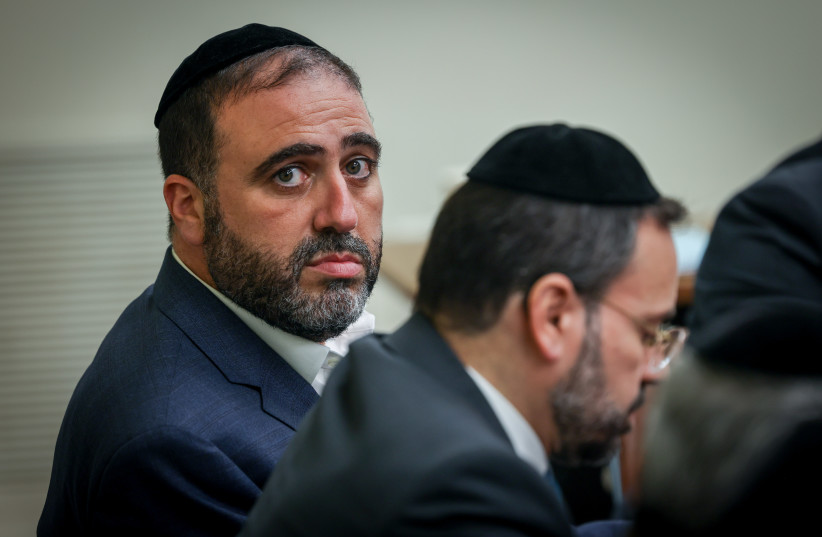Health Minister and Interior Minister Moshe Arbel (Shas) emerged as Israel's most popular ultra-Orthodox politician in a recent "Unifier Index" survey conducted by The Madad team and commissioned by the non-profit organization Derech Shira Banki.
The survey aimed to gauge how the Israeli public perceives politicians as unifying or divisive figures and their suitability for leadership roles, and Arbel's outstanding support within the ultra-Orthodox sector surpassed even that of veteran players like the party's chairman Aryeh Deri and United Torah Judaism's Moshe Gafni.
According to the survey, Arbel's dedication to moderation and non-aggressive language has earned him praise from coalition voters, where he secured an impressive score of 77, positioning him as the second-highest-rated among this group. His suitability for leadership, with a notable score of 80, reflects his growing influence in Israeli politics.
The ultra-Orthodox respondents, in particular, have voiced overwhelming support for Arbel, awarding him an exceptional score of 90 on unity-related issues. Within the Likud party, Arbel has also garnered strong backing, with voters granting him higher scores than several prominent Likud ministers. These numbers demonstrate a growing appetite for leaders who prioritize unity and inclusivity in Israeli society.
Beyond his appeal as a unifying figure, Minister Arbel's suitability for leadership was recognized with a notable score of 80. This accolade is a testament to his competence and vision for guiding the country through challenging times. As the Israeli public seeks leaders who can bridge divides and foster productive dialogue, Moshe Arbel's popularity presents a promising beacon of hope.

Who is Minister Moshe Arbel?
Arbel, an Israeli haredi rabbi and politician, studied at the Sha'arit Yisrael Talmud Torah and the Nahlat David yeshiva before serving in the IDF Home Front Command unit. After being ordained as a rabbi, he pursued law studies at Ono Academic College and worked as a legal intern and military prosecutor. Arbel's career involved roles as a director at the Keter Shalom Institute, legal advisor for the Shas party, and temporary head of the Ministry of Religious Services. Elected to the Knesset in 2019, he is married with four children and resides in Petah Tikva.
The factors that make him popular are the fact that he is considered to be one of the "new haredi politicians,": Younger, more modern, and with higher academic education.
The Unifier Index survey, designed to highlight politicians who embody moderation and non-aggressive language, aims to draw attention to figures often overlooked by the media due to their avoidance of extreme statements. As a non-profit organization dedicated to promoting moderation and tolerance, Derech Shira Banki's initiative provides a valuable snapshot of the public's perception of political figures' unity and leadership qualities.
The survey also delved into leadership preferences, with MK Hili Trooper (National Unity Party) securing the top spot with an overall score of 64. Defense Minister Yoav Gallant from Likud followed closely with a general score of 57. Impressively, Gallant received a 61 score from opposition voters, indicating his widespread appeal beyond party lines.
The Unifier Index provides invaluable insights into the public's perception of political figures, fostering a more harmonious and empathetic society amidst a challenging crisis. Derech Shira Banki's commendable work in promoting moderation and tolerance throughout Israeli society is reinforced by this survey's findings. The index encourages a shift toward more constructive and unifying discourse among elected officials, laying the groundwork for a more cohesive and understanding society.
